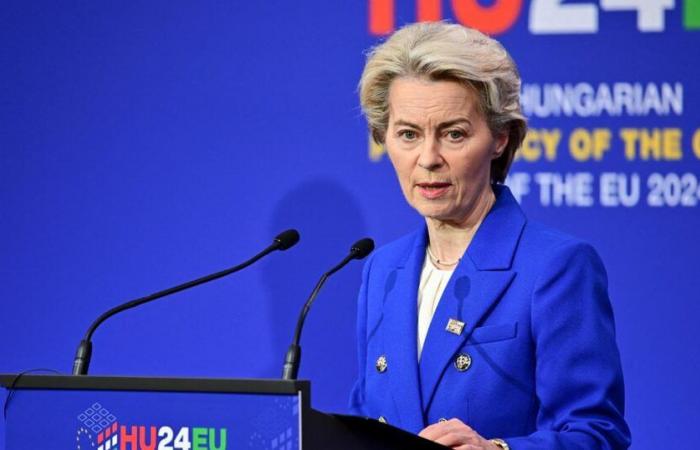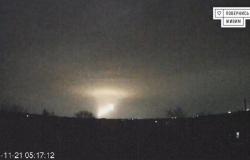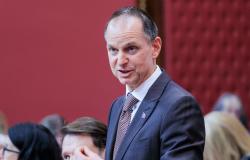“We still receive a lot of LNG from Russia so why not replace it with American LNG which is cheaper for us and lowers our energy prices?” asked the President of the European Commission.
European Commission President Ursula von der Leyen said on Friday that she had proposed to Donald Trump that the United States supply more liquefied natural gas (LNG) to the EU to replace Russian gas. The American president-elect has threatened to tax imports of European products in order to put an end to the European Union’s trade surpluses vis-à-vis the United States, which he continued to denounce during the electoral campaign.
“First of all, I think it is very important to talk to each other, then (we must) discuss our common interests and then start negotiations”declared Ursula von der Leyen, asked about how she intended to manage the commercial relationship with Donald Trump with whom she had a first telephone exchange on Thursday. “The common interests are, for example – and this is a subject that we addressed yesterday, without really discussing it in depth – everything relating to LNG. We still get a lot of LNG from Russia so why not replace it with American LNG which is cheaper for us and lowers our energy prices?she asked herself during a press conference, following a European summit in Budapest.
Also read
Energy: will there be gas this winter and at what price?
Increased purchases of US LNG
The subject could be discussed “related to the trade deficit” denounced by the American billionaire, she stressed. The European Union has already significantly increased its purchases of American LNG since Russia’s invasion of Ukraine in February 2022, but it has failed to completely cut the energy link with Moscow.
Asked how to react to Donald Trump’s threats, German Chancellor Olaf Scholz also insisted on the fact that it was possible to find areas of compromise with Washington. “Ultimately, America’s growth and strength also comes from trading with the world in both directions.”he stressed. “From this point of view, I think that the bases are there for us to develop a common policy”.
Belgium






